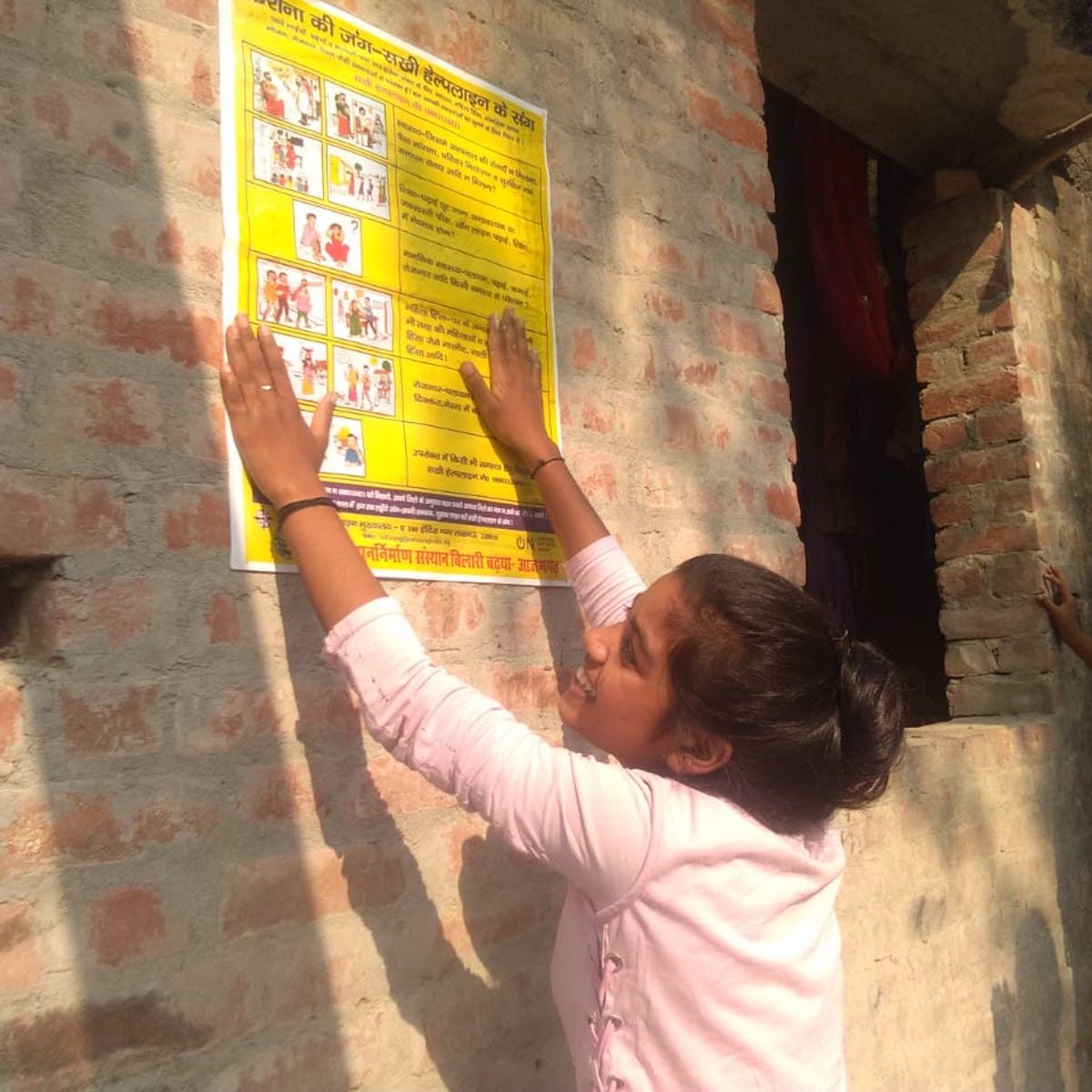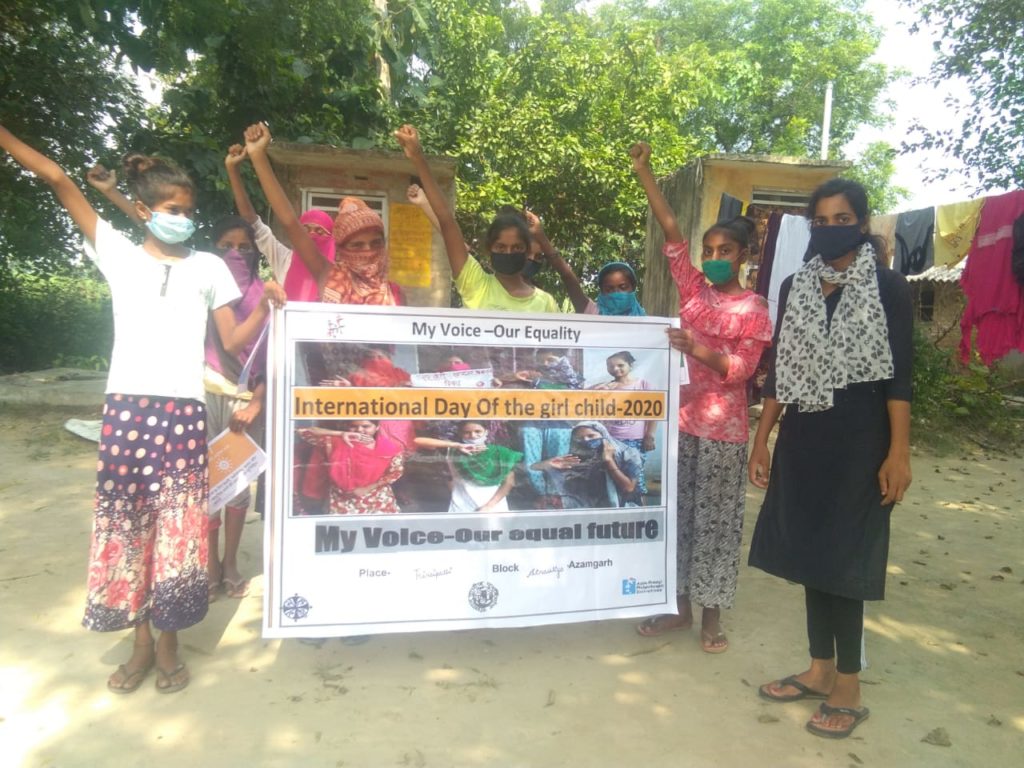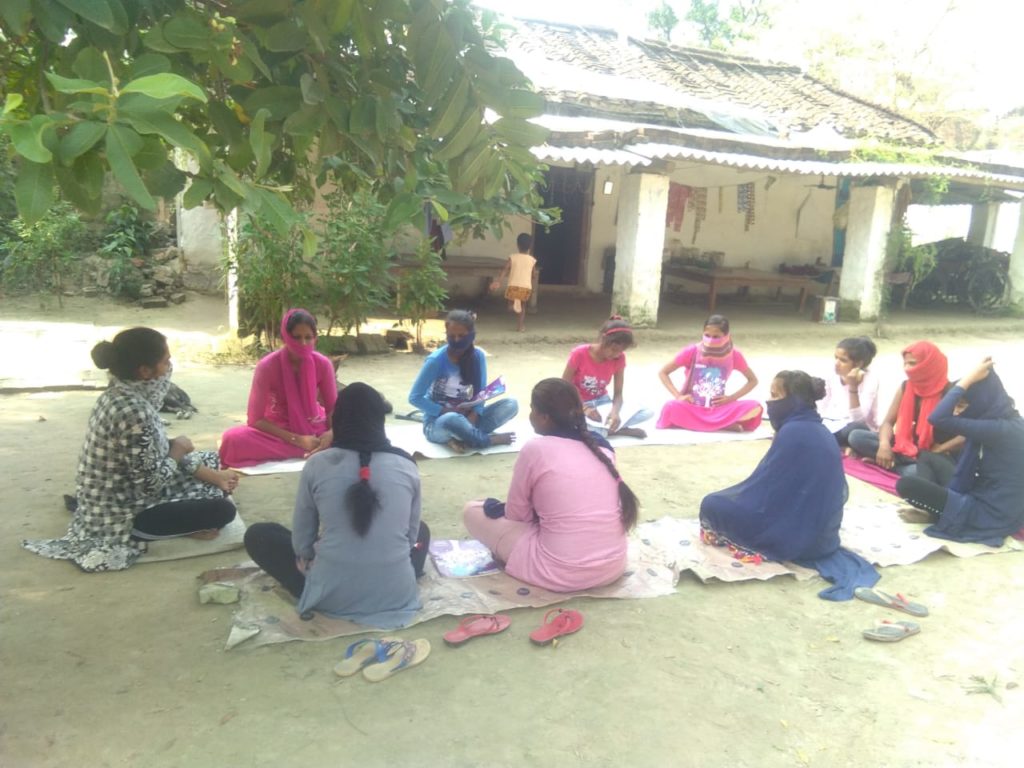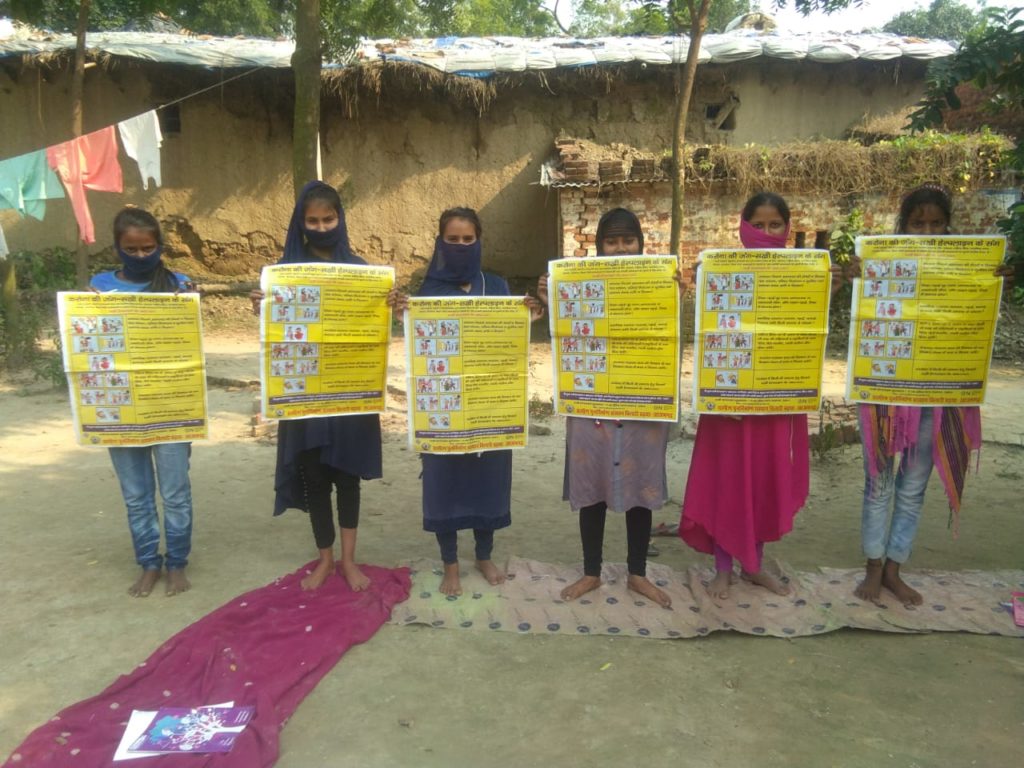
Blog
Over time, I have definitely seen little by little how the girls are speaking up to make decisions. They are strong and know what they want to achieve.
When She Leads: Anjali
December 12, 2020
Reading Time: 7 minutesThis interview is part of our When She Leads: From the Front Lines series. Learn more.
Anjali is a Community Staff Mentor in the Azamgarh communities with our partner site Milaan in Uttar Pradesh. She was interviewed by Program Officer Upasana Saha.
Press play to hear Anjali’s introduction.
Can you please tell us about your work with young girls?
I work as a Sahayogi (mentor) and facilitate sessions on girl’s rights and leadership developed by Milaan foundation. Milaan’s community based program is implemented with support of Gramin Purnirma Samiti in seven villages of the Azamgarh district in Uttar Pradesh, and I am employed through their funding.
What are the challenges young women are facing at Milaan? How do you support them?
I conduct weekly sessions as a way for me to stay connected with the girls and hear their thoughts and experiences. They have had a lot to share during the pandemic and lockdown. Unfortunately in person sessions were not possible for a few months during the lockdown from March to May.
Phone calls and WhatsApp messages have been the best possible means to stay connected with the girls to provide them emotional and wellbeing support. Most girls experienced restricted mobility, which had multiple consequences, especially in regards to their menstrual health and hygiene. Girls were forced to use bare minimum means like old cotton clothes during their menstruation. During a particular session, I conducted a lesson to teach the participants how to make sanitary pads at home and ways to maintain hygiene while using them.
With so much job loss, many male members of the family migrated back to the villages resulting in more economic hardship and lack of physical space for girls to exercise minimum privacy or even take time for their studies. Most girls have experienced emotional stress and have not known how to deal with such unprecedented anxiety with their schools/colleges being shut down and the financial worries.
As you mentioned, in-person programming was paused until May. When you started in-person again, how did you manage it?
Prior to the in-person sessions, we did a lot of telephonic conversation, to ensure girls didn’t drop out of schools, continued with their studies and able to share their feelings. I missed doing my in person community session and I often heard the girls saying that as well.
In May when we resumed our community sessions, the original plan was pivoted and large groups had to be broken into much small groups. We began with less than 10 girls in each group and slowly it has grown to 20. To ensure social distancing, girls sit far away from one another. We spend a lot of time explaining the importance of wearing mask and maintaining social distancing.
I know that you are also a student. Can you share how you balance your work and school responsibilities together?
Yes, I am in the third year of program. I am on course to complete my undergraduate degree in Bachelors of Education next year. My courses don’t require me to attend the college in-person on a regular basis, so I am mostly able to study from home. I only go in-person to my college to take exams or if anything important arises. My college arrangement really enables me to have time for my mentor job with Milaan.
What inspired you to join Milaan and to do community work?
I first learned about Milaan two years ago. One of my friends at college informed me about Milaan. I was interested the very moment I learned about their work. I always wanted to improve women’s socio-economic positions and to help empower them. I felt this job was the best way to expand my knowledge and experience of working on women rights issues.

What do you like the most about your work with Milaan?
I love working with the young women because they don’t want to waste their time at home–they always want to learn new things. I enjoy being around them.
What are the qualities you have learned since you have started the community-based activities as a Sahayogi (mentor)?
I am a strong woman now. Before, I felt scared to speak to other men or raise my voice against any kind of social injustice or discrimination. I felt that fear stemmed from a lack of information and communication skills. These days after attending the trainings with Milaan and facilitating sessions with the program participants, I am more confident to articulate my thoughts without any fear and advocate for girls’ rights work.

Over the past 2 years of working with Milaan, how have you seen the young women participants grow and gain in confidence?
Girls in the village never get to make decisions at home, but now many of them know how to convince their families to allow them to continue their education. They aren’t shy to express their feelings–that is the best improvement I have observed from the girls. The girls help each other in the community and are improving educationally. I always tell them, “If you want to study, first show your parents that you have a interest to study. Make them believe in you and then join a good school.”
When I started my workshops, all the girls were unclear about what it means to make decisions along with families. They were struggling to articulate girl’s issues and get their parents to understand. Now, every girl has a phone and they can call me whenever they have any issues or to share their opinions. Over time, I have definitely seen little by little how the girls are speaking up to make decisions. These girls are strong and they know what they want to achieve.
What are some of the challenges you encounter while doing this work?
Working in the community on topics like gender and patriarchy is something which is never recognized as a priority. Therefore, unfolding the program importance and mobilization takes a lot of time. Along with the participants, I also have to maintain strong rapport with local stakeholders, including families. Fortunately, the village frontline workers have always supported myself and other Milaan staff to identify families and girls who we could work with. Convincing the families takes systematic follow-up and negotiation. Additionally, managing the program participants when we start meeting requires a lot of patience and team building activities. As a mentor, I have to work along with other mentors to prepare session plans and activities before every week. We can’t be unprepared because the girls always have so many questions to ask.
Do you have plans for your future?
I want to become a Social Worker. I want to continue to be a role model for young girls. I want to encourage them to study well or pursue higher education. It gives me endless happiness to be around young women and to continue to grow along with them.
Read more



